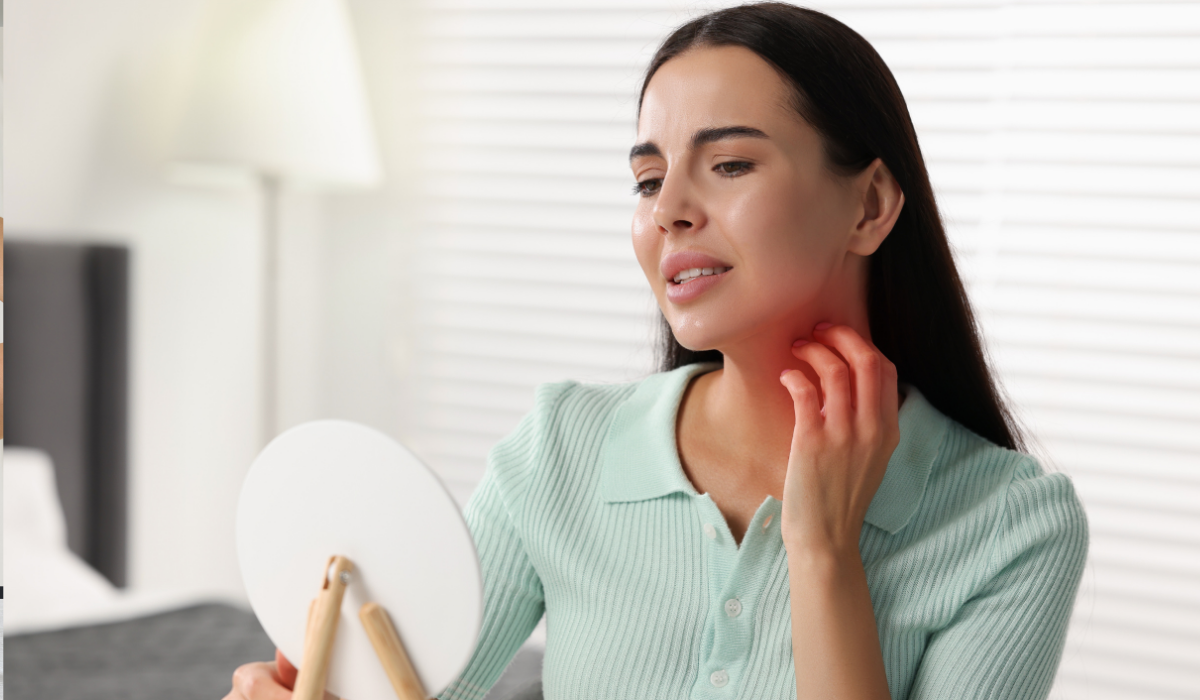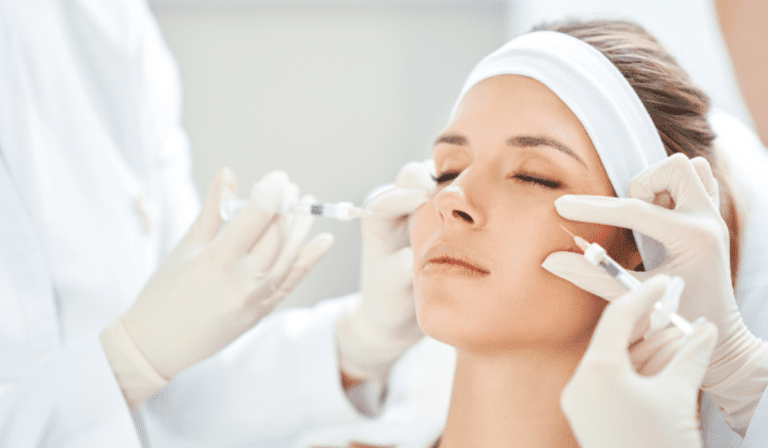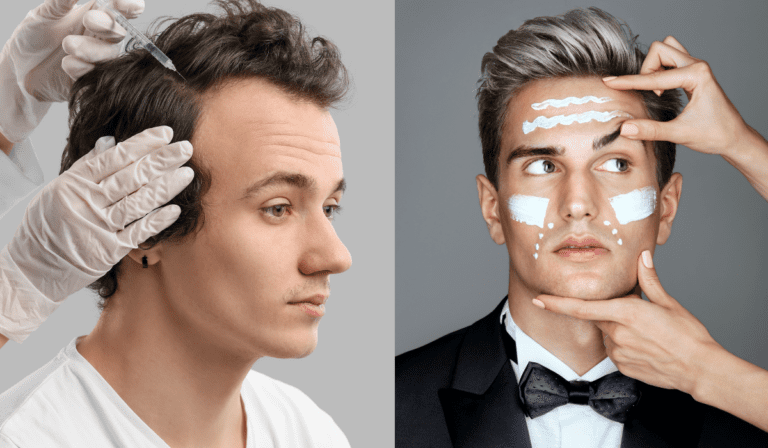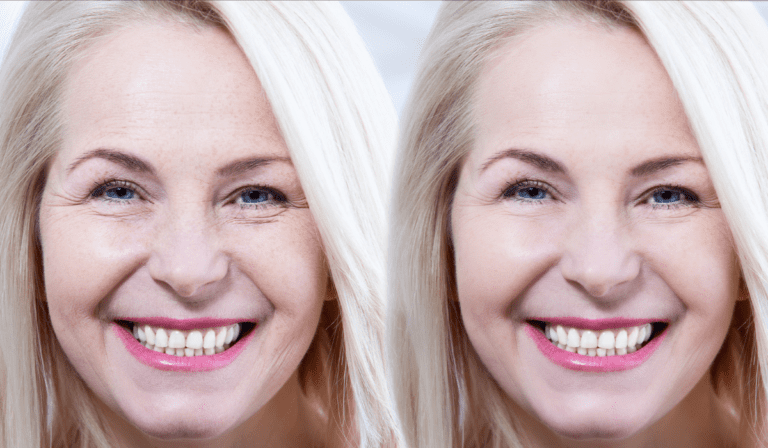Reduce Skin Redness and Inflammation: Effective Tips for Quick Relief from Eczema Symptoms
Different Types of Eczema Symptoms
Skin redness & inflammation is a relatively common problem. It may affect the face or other parts of the body. The underlying cause is irritation. You might think of it as a symptom but it could be because of Eczema. We can reduce skin redness and inflammation by different methods.
What Is Eczema?
Eczema is the conventional term to identify any skin swelling and it is also formally known as dermatitis. Eczema is of different types and it is identified with various eczema symptoms. They affect people of all ages specifically children below 3 years. These diseases are genetic and mostly come along with allergic conditions such as asthma or hay fever. It is estimated that 20% of infants and a small percentage of adults have this disease. The cause of the eczema could be an atypical functioning of the immunity system of the patient’s body. It can also be caused due to reasons like ecological allergens.
Symptoms and Types of Eczema
The symptoms differ from individual to individual and are also based on the eczema types. The usual eczema is dryness and reddening of the skin. The reddened skin intensely itches or burns and these are the prior symptoms for many people. The patients can be spotted with blood blisters and emission starches.
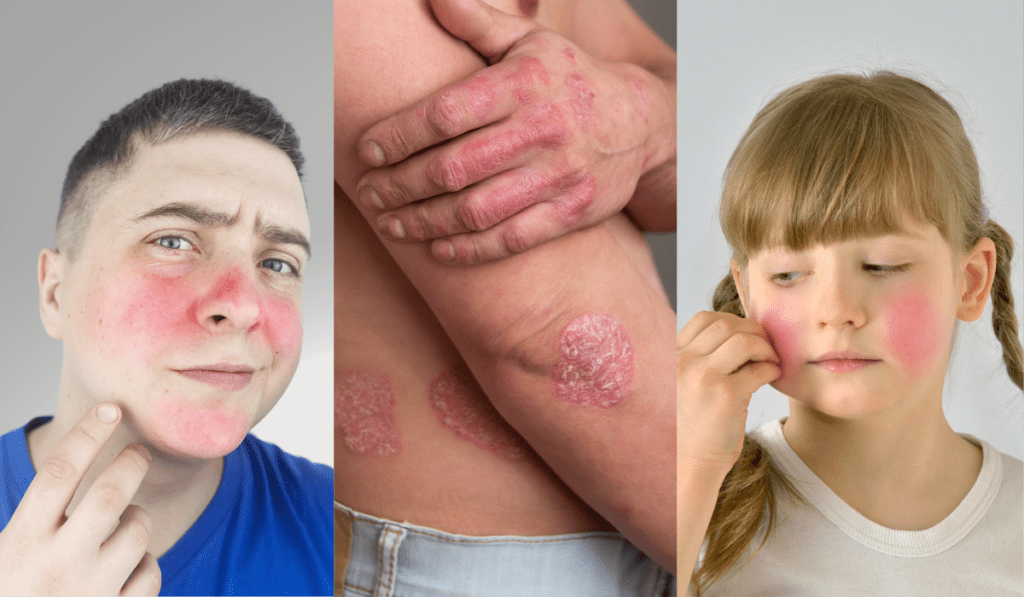
These symptoms of eczema could be seen mainly on the patient’s face, neck, and sometimes on their knees, ankles, and elbows. They can arise as a concise symptom or it can persist for a prolonged period becoming a chronic disease for the patients.
Various Types of Eczema
Atopic eczema is common for toddlers and the reason is mainly due to the malfunctioning of their immune systems. They are itching and irritated skin. The eczema which has reddening of skin along with itches and burns is Contact eczema. They are very reactive when they come in contact with substances such as chemicals, detergents, and perfumes.
Seborrhea eczema is identified with the symptoms such as oily yellowish and scaly patches on the skin. These patches are commonly found on cheeks and scalps and sometimes on other parts. The reasons for these are diagnosed as stress and the oily nature of the skin of the patients.
Nummular eczema is identified by coin-shaped rashes on the skin. These are mainly felt by the sufferers around their elbows, backs, and under their feet. They are visible in many aged men and they are usually chronic.
Neurodermatitis is a chronic skin inflammation that is sensed with high scratchy itching. They are much closer to the insect bites which are reactive on periodic cycles and reactive to allergic materials and chemicals.
Stasis eczema symptoms are typically seen on the patient’s lower legs. These are mainly due to the venous unsafe. Neurodermatitis is a chronic skin inflammation that is sensed with high scratchy itching which is because of malfunction of their circulatory problems. They are found in most of the elderly and aged people.
Dyshidrotic eczema is marked by symptoms such as rashes on the palms and on the toes, which rapidly increase with the sunny and warmer seasons. They are prone to both males and females of all ages. The diagnoses of this disease are a little more complex since they do not rely on physical examination alone. The eczema is similar to other skin diseases. They do not have any specific laboratory tests.
Tips for Quick Relief
Here are 7 tips that can help you reduce the common sources of irritation.
1. Check Your Skincare Products for Irritating Ingredients
Most skincare products contain irritants and allergens. Because they are used on the outside of your body, companies have been less concerned or cautious about cosmetic ingredients. Only recently have new companies come on the scene to offer safer alternatives. Some of the more irritating ingredients include alcohol and abrasive particles. Yet alcohol is included as an ingredient in practically all popular skincare products. Check the label of ingredients and stop using it if it contains an irritant.
2. Cleanse Gently
Dermatologists have stated emphatically that they see far more problems caused by over-cleansing than by under-cleansing. Good hygiene is of obvious importance, but it is simply unnecessary to scrub. This is especially true when it comes to your face. Exfoliants should not be used daily. They may not be necessary at all.
3. Choose a Gentle Natural Cleanser
The cause of skin redness & inflammation could be the ingredients in the cleanser. Many of them contain exfoliating ingredients that are known to be irritating. A good foaming cleanser that contains natural ingredients like kiwifruit extract will keep your skin clean without making it red or irritated.
4. Always Moisturizer Your Face
Many people think that a moisturizer is not necessary. Some people think they have oily skin and that a moisturizer will make their problem worse. Everyone who washes their face daily should be using a good daily moisturizer.
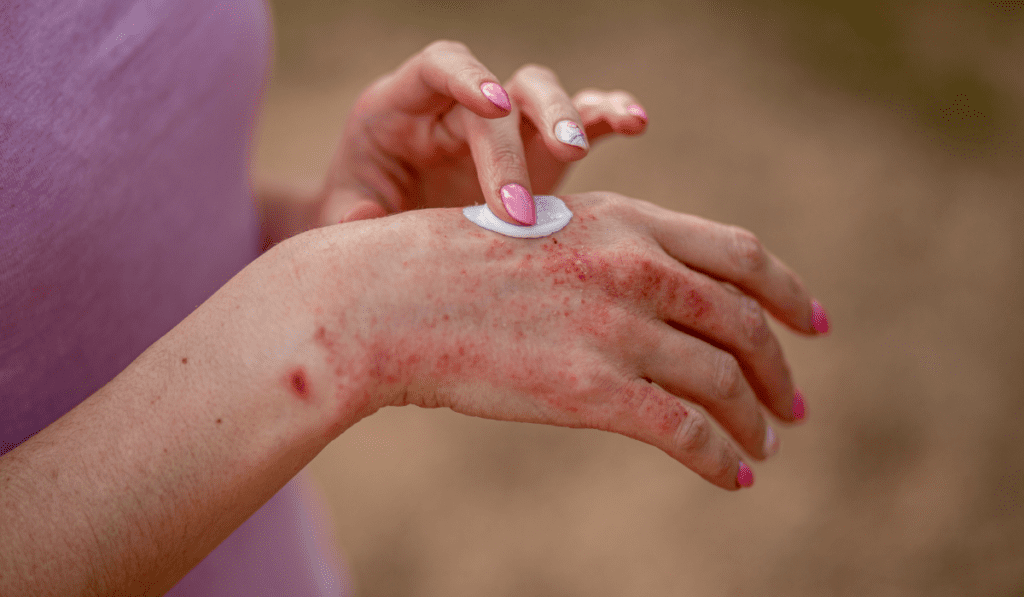
One of the best contains grape seed oil and natural vitamin E which are known to reduce skin redness & inflammation. Another ingredient is a proprietary one that stops the inflammatory product. It’s a little more difficult to find, but it alone could solve the problem.
5. Moisturize Your Body
Although the face is the most common location for this kind of irritation, it could affect any part of your body. Choose a good natural body lotion and use it right after you shower. Ingredients like jojoba oil have natural anti-inflammatory activity. Jojoba is also beneficial for reducing stretch marks and scars.
6. Use Caution in the Sun and Wind
The sun and wind can also be irritants. Your facial moisturizer and body lotion will help prevent skin redness & inflammation caused by excessive exposure to the elements, but you should still use caution. Wear protective clothing and avoid direct sunlight on your face whenever possible.
7. Take Fish Oil
Fish oil is known for its natural anti-inflammatory activity. Some brands are better than others when it comes to anti-inflammatory activity. Don’t think that any brand is better than none. Some brands could do more harm than good because they contain toxins. Environmental groups have proven that to be true.
If you use all seven of these tips for reducing skin redness & inflammation, you should see your problem resolved in no time.

